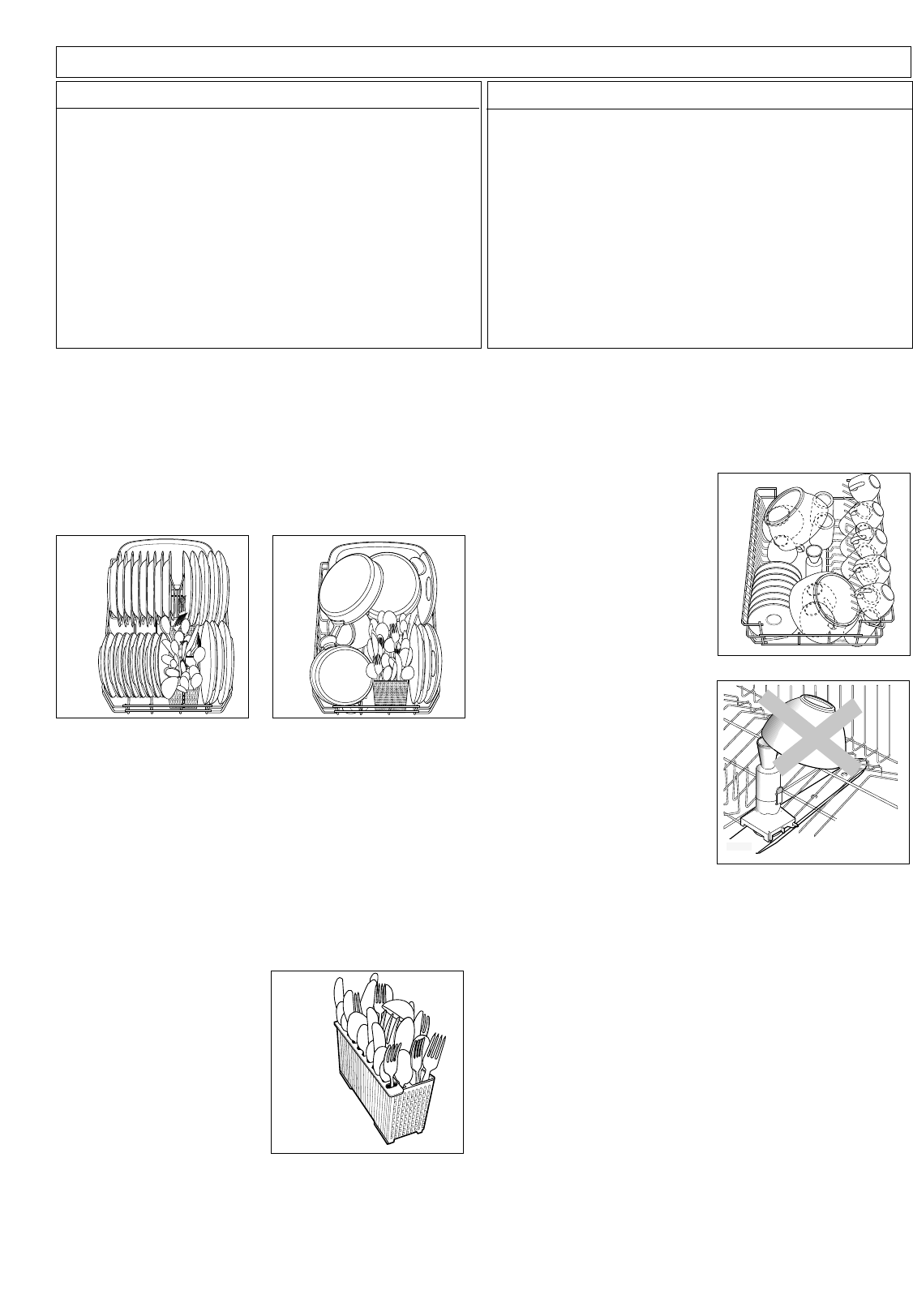
7
Open the door and slide out the baskets to load the dishes.
The lower basket
The lower basket is designed to take saucepans, lids, plates,
salad bowls, cutlery etc.
Serving dishes and large lids should be arranged around the
edge of the basket, ensuring that the upper spray arm can turn
freely.
The cutlery basket
Long bladed knives stored in an upright position are a
potential hazard.
Long and/or sharp items of cutlery such as carving knives
must be positioned horizontally in the upper basket.
Take care when loading or unloading sharp items such as
knives.
Cutlery should be placed in the removable cutlery basket with
the handles facing downwards. If the handles protrude from
the bottom of the basket, obstructing the lower spray arm, load
the cutlery with the handles facing upwards.
Mix spoons with other cutlery
to prevent them from sticking
together.
Arrange spoons, dessert
spoons, knives and other
small items of cutlery in the
rack on the side of the
cutlery basket.
The upper basket
The upper basket is designed for plates (dessert plates,
saucers, dinner plates of up to 24 cm in diameter), salad
bowls, cups and glasses.
Arrange items on and underneath the cup rack so that water
can reach all surfaces.
Glasses with long stems can
be placed upside down in the
cup rack.
Light items (plastic bowls
etc.) must be loaded in the
upper basket and arranged
so they do not move.
When loading the upper
basket, ensure that you do
not cover the water inlet
funnel in the middle of the
upper basket.
Before closing the door, ensure that the spray arms can
rotate freely.
For washing in the dishwasher the following cutlery/dishes
are of limited suitability:
- Only wash stoneware in the dishwasher if it is specifically
marked as being dishwasher-safe by the manufacturer.
- Glazed patterns may fade if machine washed frequently
- Silver and aluminium parts have a tendency to discolour
during washing. Left-overs, e.g. egg white, egg yolk and
mustard often cause discolouring and staining on silver.
Therefore always clean left-overs from silver immediately, if
it is not to be washed straight after use.
- Some types of glass can become dull after a large number
of washes
are not suitable:
- Cutlery with wooden, horn, china or
mother-of-pearl handles
- Plastic items that are not heat resistant
- Older cutlery with glued parts that is not
temperature resistant
- Bonded cutlery items or dishes
- Pewter or copper items
- Lead crystal glass
- Steel items subject to rusting
- Wooden platters
- Items made from synthetic fibres
UI57
UI08
UI12
US56
US16
US16


















